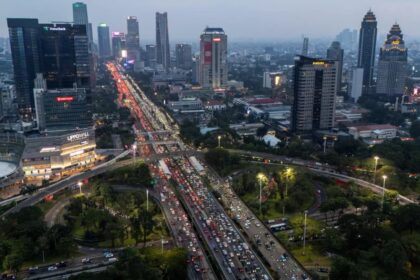Why record deposits matter now
Hong Kong is drawing fresh inflows of cash. Total bank deposits crossed HK$19 trillion in 2025, reinforcing the citys image as a stable home for funds during a volatile year for trade and geopolitics. New data from the Hong Kong Monetary Authority shows deposits at HK$19.1 trillion in September, a 1.3 percent rise from August. The stock of deposits is more than 10 percent higher than at the end of 2024, after a 7 percent expansion in 2024 over 2023. That scale of growth, on top of a large base, is a strong signal that money is seeking safety and liquidity in the city.
- Why record deposits matter now
- What is behind the HK$19 trillion figure
- Markets and fundraising signal renewed confidence
- Safe haven dynamics in a turbulent world
- Why Hong Kong still matters to mainland wealth
- Trade resilience and the logistics edge
- How Hong Kong compares with other banking hubs
- Risks that could test the safe haven claim
- What to watch in the months ahead
- Key Points
Financial Secretary Paul Chan Mo po said investors, unsettled by geopolitical risk, are reassessing portfolios, diversifying, and shifting cash to Hong Kong. He pointed to the steady climb in deposits, a rebound in listings, and the depth of wealth management as signals that global capital is seeking stability in the city. He also said several international financial institutions that attended events in Hong Kong in recent months plan to add staff and expand operations.
Chan framed the trend as a vote of confidence in the citys core strengths, from the free flow of capital and a rules based legal system to Hong Kongs role as a gateway to mainland China.
Paul Chan, Financial Secretary of the Hong Kong Special Administrative Region: “Hong Kong has become a safe haven for capital.”
Alongside the financial inflows, officials say the real economy is holding up. Merchandise exports have recorded nineteen straight months of year on year growth, and rose 11.3 percent in the first three quarters despite a tariff standoff among major trading partners. The policy focus now includes further upgrades to port services and logistics to capture trade as supply chains continue to evolve.
What is behind the HK$19 trillion figure
The headline total captures a broad base of savings, corporate cash, and institutional balances in both Hong Kong dollars and foreign currencies. The Hong Kong Monetary Authority reported HK$19.1 trillion of deposits in September, up 1.3 percent from the prior month. Deposits have risen by more than a tenth this year after a solid expansion in 2024. These are not one time spikes. They reflect a sequenced build up that aligns with rising risk aversion across markets and with the citys efforts to re engage global finance.
Hong Kongs monetary framework also supports confidence. The Hong Kong dollar is linked to the United States dollar via a currency board that requires full backing of the monetary base by foreign reserves. The structure has a multi decade track record. It provides clarity on exchange rate risk and a transparent mechanism that allows the HKMA to adjust interbank liquidity when the currency tests the edges of its trading band. For depositors, that predictability reduces uncertainty during periods of market stress.
Markets and fundraising signal renewed confidence
Investor appetite has warmed alongside deposit growth. The Hang Seng Index has risen by more than 30 percent year to date after an 18 percent gain in 2024, according to market updates. Trading activity has accelerated, with average daily turnover more than double last years level and surpassing HK$240 billion in 2025. That recovery in liquidity helps new issuers and improves price discovery across sectors.
Listing activity has also strengthened. In the first ten months of the year, 81 companies came to market in Hong Kong, a rise of about 50 percent from the same period a year earlier. Funds raised reached roughly HK$216 billion, placing the city at the top of the global rankings for new listings so far this year. Officials say several major deals drew cornerstone investors from Western markets and the Middle East, a sign of broad based sponsorship for issuance.
IPO momentum and cornerstone investors
Cornerstone investors give new deals a solid starting point and reduce execution risk. Their commitments often represent a sizable share of an offering, signaling confidence to other buyers. The participation of institutions from the Middle East and Europe alongside long standing investors in Asia expands the investor base for listings. It also builds syndicate capacity for future offerings in sectors such as new economy, biotechnology, and consumer technology. In Hong Kong, new economy and biotechnology companies now account for a larger share of the market by number and by value, which has improved the depth of growth sectors on the exchange.
Wealth management and insurance growth
Hong Kongs asset management and insurance franchises are expanding. By the end of March, the number of registered funds was near one thousand and net inflows exceeded 44 billion United States dollars. In insurance, new long term policies issued in 2024 reached about 1.08 million, with premiums close to HK$220 billion. That represented a sharp increase compared with 2022. Officials expect the city to become a leading cross border asset management center within two to three years if recent trends continue.
Safe haven dynamics in a turbulent world
Safe haven behavior rises when investors worry about war, sanctions, tariffs, or policy shocks. In those periods, cash balances grow and allocations tilt toward liquid markets with stable legal systems and currency regimes. De dollarization debates continue, yet the United States dollar still anchors global finance. It dominates foreign exchange turnover, trade invoicing, cross border liabilities, and foreign currency debt issuance. At the same time, reserve managers in emerging markets have diversified gradually into gold. Deposit dollarization remains high in many countries, while China stands out for reducing some reliance on the dollar within its domestic system. Against that backdrop, a financial center that offers access to United States dollar liquidity and a predictable currency framework can attract risk sensitive inflows.
Investor behavior in Hong Kong reflects those themes. Surveys show affluent investors in the city raised portfolio allocations to gold from about 4 percent to 11 percent between mid 2024 and mid 2025. Gold traded around 3,356 United States dollars per ounce in July 2025, up strongly from prior years. The rise in gold buying has included physical bars and coins, exchange traded funds, and digital platforms. Drivers include inflation concerns, debate over real interest rates, currency risk, and regional trade tensions. The shift to gold complements the move to larger cash balances in bank deposits, reinforcing the safe haven narrative.
Why Hong Kong still matters to mainland wealth
Private wealth from mainland China has longstanding ties to Hong Kong. The city combines close economic integration with a separate legal and monetary system. That mix is central to its appeal for wealth protection and international investment. The independent judiciary, based on common law traditions, is seen as predictable for commercial disputes. The separate currency and free flow of capital allow international diversification that is harder to arrange on the mainland. Wealth planning structures add another layer. Earlier regulatory surveys of the asset and wealth management industry counted more than 3 trillion United States dollars in assets managed in Hong Kong and hundreds of billions in trust assets, with a large share linked to clients from Hong Kong and the mainland. Those findings, while historical, illustrate the scale of private money that depends on the citys status.
Trade resilience and the logistics edge
Officials say Hong Kongs merchandise exports have been resilient despite tariff pressures between major economies. The city has recorded nineteen straight months of year on year growth, including an 11.3 percent gain in the first three quarters. That performance supports jobs in logistics, wholesale, and related services. It also underpins confidence in the broader economy as financial services regain momentum.
Policy makers are pushing to sharpen the ports international advantages. Priorities include upgrading maritime services, attracting more commodities trade, and developing high value added activities such as ship finance, arbitration, and specialty insurance. The most recent Hong Kong Maritime Week drew a record crowd of about 18,000 participants. Officials also plan trade and finance outreach in Europe, including stops in London and Milan, to present Hong Kongs opportunities to business leaders and investors.
How Hong Kong compares with other banking hubs
Investors often weigh Hong Kong against Singapore, Switzerland, the United Arab Emirates, and offshore centers in the Caribbean or the Indian Ocean. Each market serves different needs. Hong Kong and Singapore stand out for regulatory stability, depth of banking services, and multi currency capabilities, along with strong digital platforms and corporate services. Switzerland remains a leader in private banking and client service for high net worth families. The UAE offers strategic access to markets in the Middle East, Africa, and South Asia. Jurisdictions such as the Cayman Islands, Panama, and Mauritius can offer flexible frameworks that appeal to certain structures, though access standards and documentation requirements differ.
Access and account opening
Remote account opening is comparatively accessible in Hong Kong through licensed fintech providers and intermediaries, which helps founders and investors set up quickly. Singapore supports partial remote onboarding, while some banks in Switzerland, the UAE, and Panama still prefer in person verification. Minimum balances vary widely. Fintech platforms in Hong Kong can accept small balances, while traditional banks in several hubs ask for larger deposits that can run from a few thousand to more than one hundred thousand United States dollars. Across markets, know your customer and anti money laundering rules are strict. Clients must show proof of identity and address, document source of funds, and, where applicable, meet reporting requirements such as FATCA.
Currency and regulatory considerations
Hong Kong and Singapore offer broad multi currency support and efficient foreign exchange. Both have clear tax and regulatory frameworks for international business. Some privacy first jurisdictions require especially careful documentation to avoid compliance risk. For companies with clients and suppliers in mainland China, Hong Kong provides proximity, programmatic links to onshore markets, and a time zone that aligns with Asia and Europe. Many firms value that combination when weighing where to base treasury and wealth operations.
Risks that could test the safe haven claim
Safe havens still face cycles and shocks. Deposit flows can reverse if global conditions change. Higher interest rates in major economies, swings in risk appetite, and new trade restrictions can all tighten financial conditions. The property market and corporate borrowing costs can affect sentiment. Relations among large economies remain a source of uncertainty. The Hong Kong dollar link to the United States dollar depends on the credibility of the currency board, which the HKMA defends through its rule based mechanism. The system automatically tightens local liquidity when the currency weakens toward the edge of its band and does the opposite when it strengthens. Ample foreign reserves and a consistent operating record have supported that framework through past stress events, but investors will continue to monitor the mix of rates, growth, and capital flows.
What to watch in the months ahead
Several signposts will show whether the safe haven story endures. Monthly HKMA deposit data will indicate whether inflows remain steady. The IPO calendar, cornerstone participation, and post listing performance will gauge risk appetite. Hiring plans by international banks, asset managers, and insurers will confirm whether global institutions are committing more resources to the city. Export growth and throughput at the port will reflect competitiveness in logistics. Portfolio shifts toward gold and other hedges will signal how investors are balancing risk. Government outreach to Europe and the Middle East may also help deepen channels for capital and trade.
Key Points
- Total bank deposits in Hong Kong have surpassed HK$19 trillion in 2025, with HK$19.1 trillion recorded in September and a 1.3 percent monthly rise.
- Deposits grew 7 percent in 2024 compared with 2023 and have increased by more than 10 percent this year.
- Paul Chan says Hong Kong is a safe haven for capital as investors diversify amid geopolitical tension.
- The Hang Seng Index is up more than 30 percent year to date, after an 18 percent gain in 2024, with average daily turnover surpassing HK$240 billion.
- In the first ten months of 2025, 81 IPOs raised about HK$216 billion, placing Hong Kong at the top of global listings by funds raised.
- Wealth management is expanding, with close to one thousand registered funds by March and net inflows above 44 billion United States dollars.
- Insurance is growing, with about 1.08 million new long term policies in 2024 and premiums near HK$220 billion.
- Exports have recorded nineteen straight months of year on year growth and rose 11.3 percent in the first three quarters.
- International financial institutions have indicated plans to expand headcount and operations in the city.
- Investors have lifted gold allocations in Hong Kong, reflecting a broader shift toward safe assets alongside higher cash balances.












